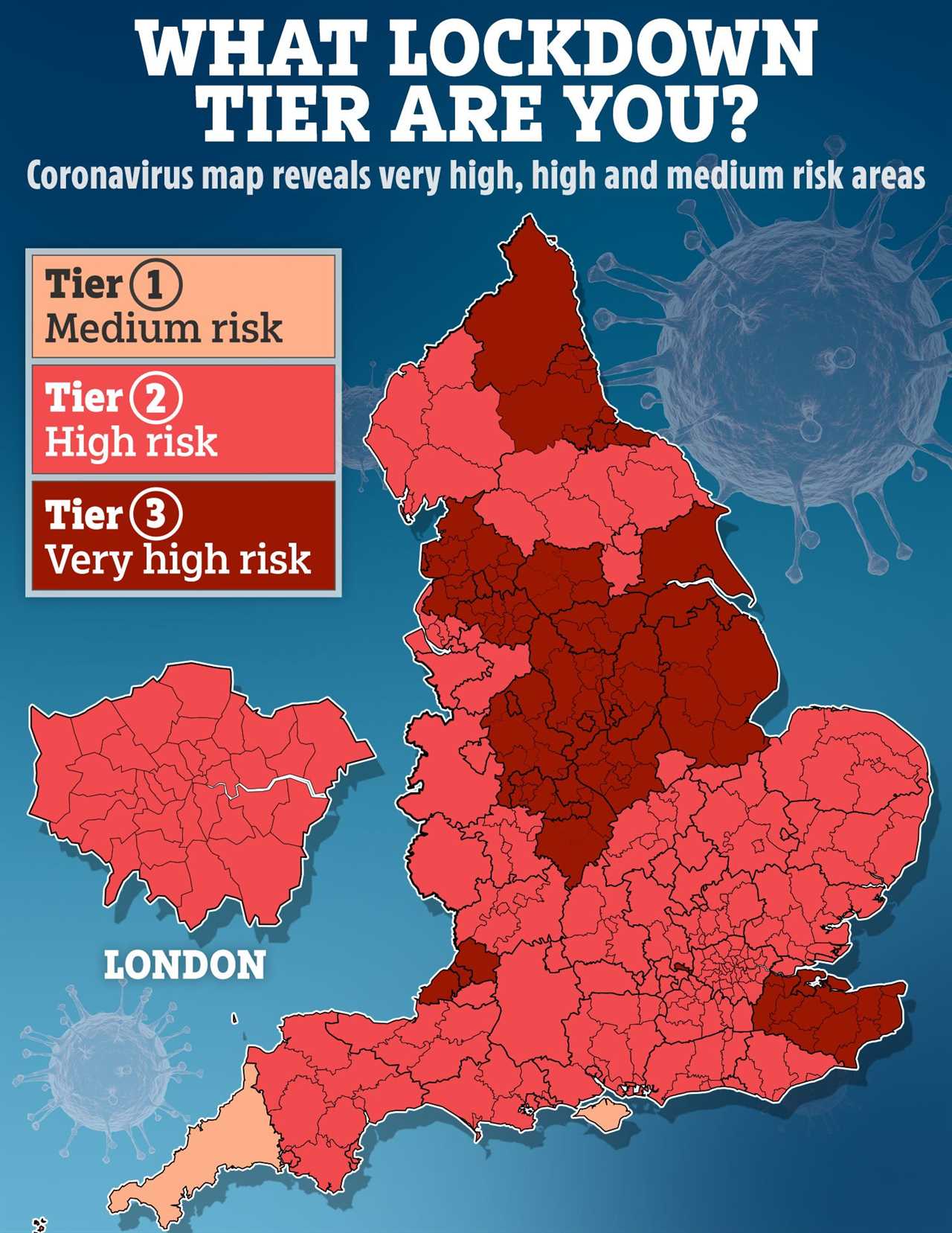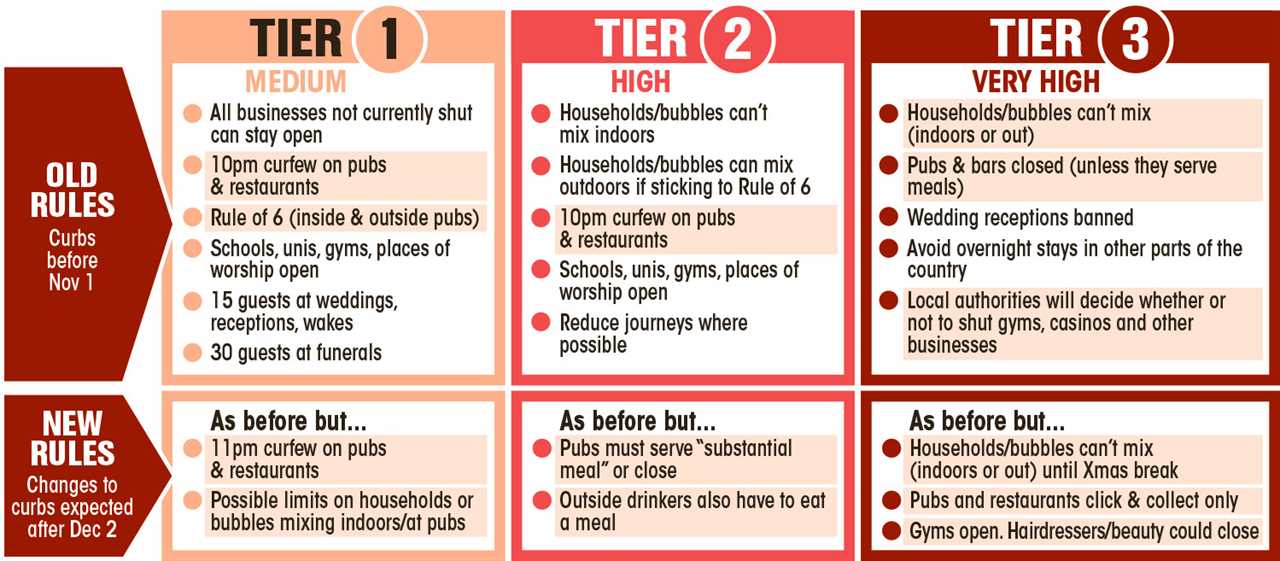THE Covid R-rate is under 1 according to a new study of people tested for the bug during the second lockdown.
The study of 105,000 volunteers by Imperial College London and Ipsos MORI show that the R-rate for the nation is now around 0.88.
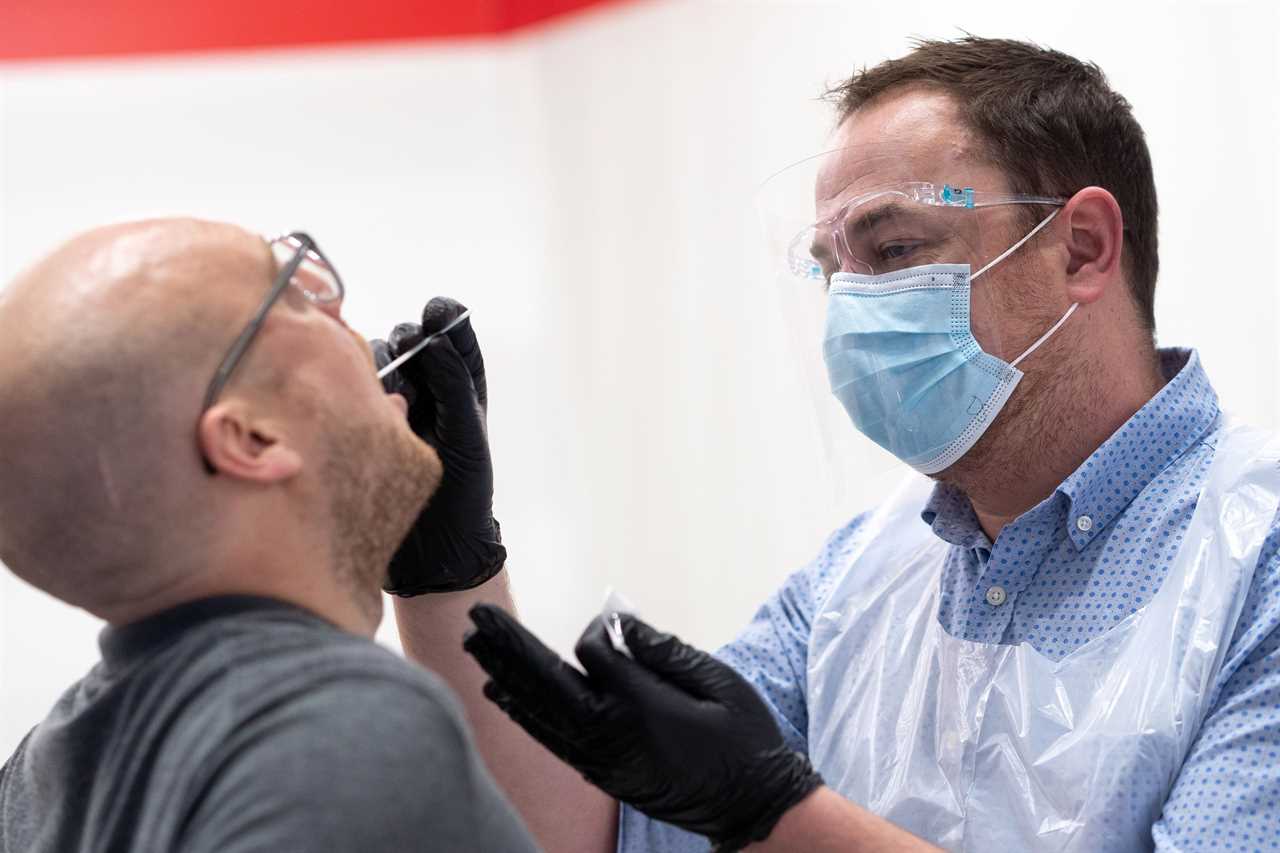
They also say that infections are down 30 per cent nationally between the 13th and 24th of November.
Yesterday the UK recorded another 12,155 new coronavirus cases while 215 people who tested positive for the virus have died.
They are down from Saturday when 479 deaths and 15,871 cases were announced.
Health Secretary Matt Hancock said the survey backs up findings from SAGE that stronger measures are still needed following the end of the national lockdown.
Infections fell by over 50 per cent in the North West and North East, but the prevalence is highest in the West Midlands, East Midlands, Yorkshire and the Humber.
‘FOOT OFF THE PEDAL’
Mr Hancock said: “Thanks to the huge efforts of the public over the last few weeks we have been able to get the virus more under control.
“This latest data shows we must keep our resolve and we cannot afford to take our foot off the pedal just yet, despite the encouraging fall in cases and progress on vaccines.
“The next few weeks and months are the busiest time of year for our NHS, so it’s vital we all continue to follow new local restrictions, wash our hands, wear a face covering and observe social distancing.”
Professor Paul Elliott, director of the programme at Imperial, added: “Our robust data offers encouraging signs for England’s epidemic, where we’re seeing a fall in infections at the national level and in particular across regions that were previously worst affected.
“These trends suggest that the tiered approach helped to curb infections in these areas and that lockdown has added to this effect.
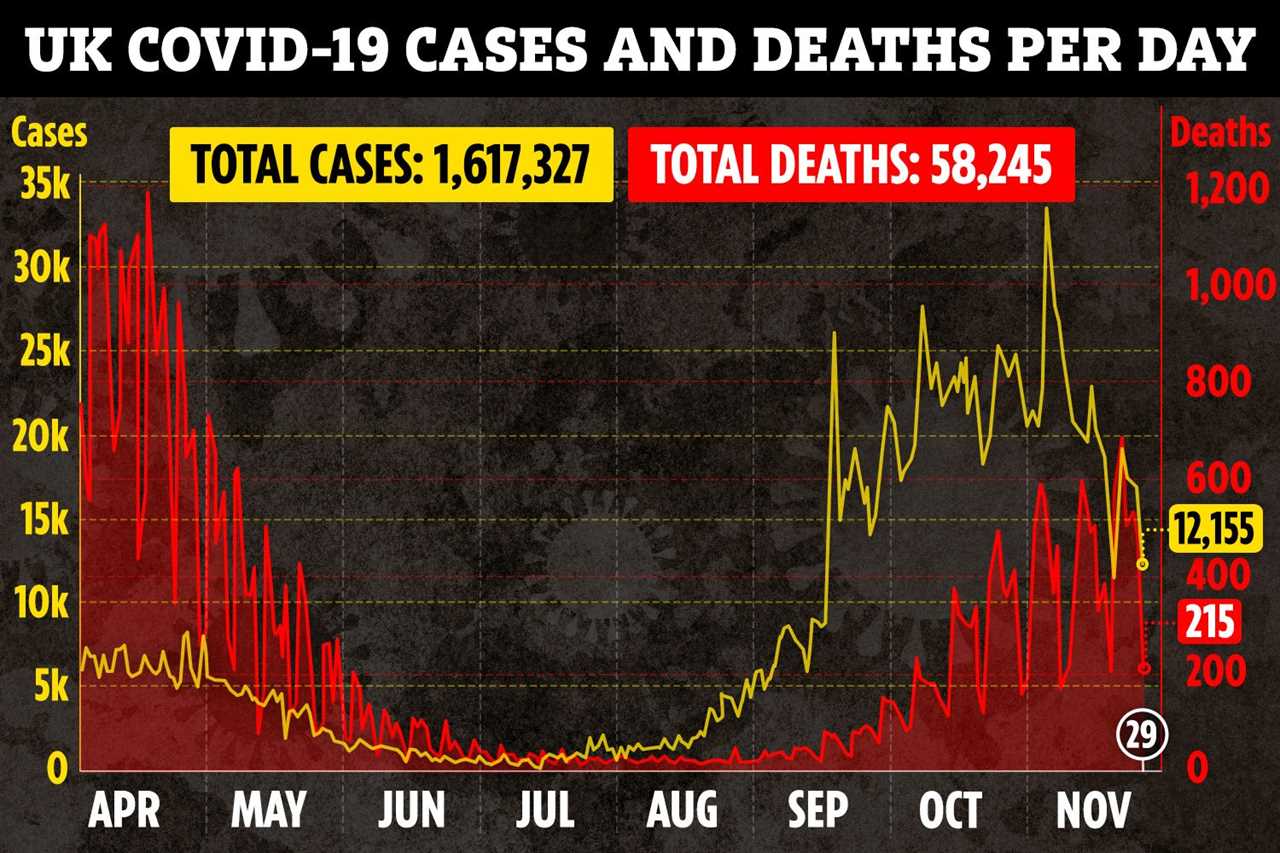
“As we approach a challenging time of year, it’s even more vital that through our actions and behaviours we all play our part in helping to keep the virus at bay.”
Yesterday Peter Openshaw, professor of experimental medicine at Imperial College London, also said it would be a “terrible mistake” to relax restrictions just months before vaccines “start to have an effect”.
He told The Andrew Marr Show on the BBC: “We scientists are very concerned indeed about relaxation of precautions at this stage.
“The rates are still too high, there’s too many cases coming into hospitals, too many people dying.
“And if we take the brakes off at this stage, just when the end is in sight, I think we would be making a huge mistake.
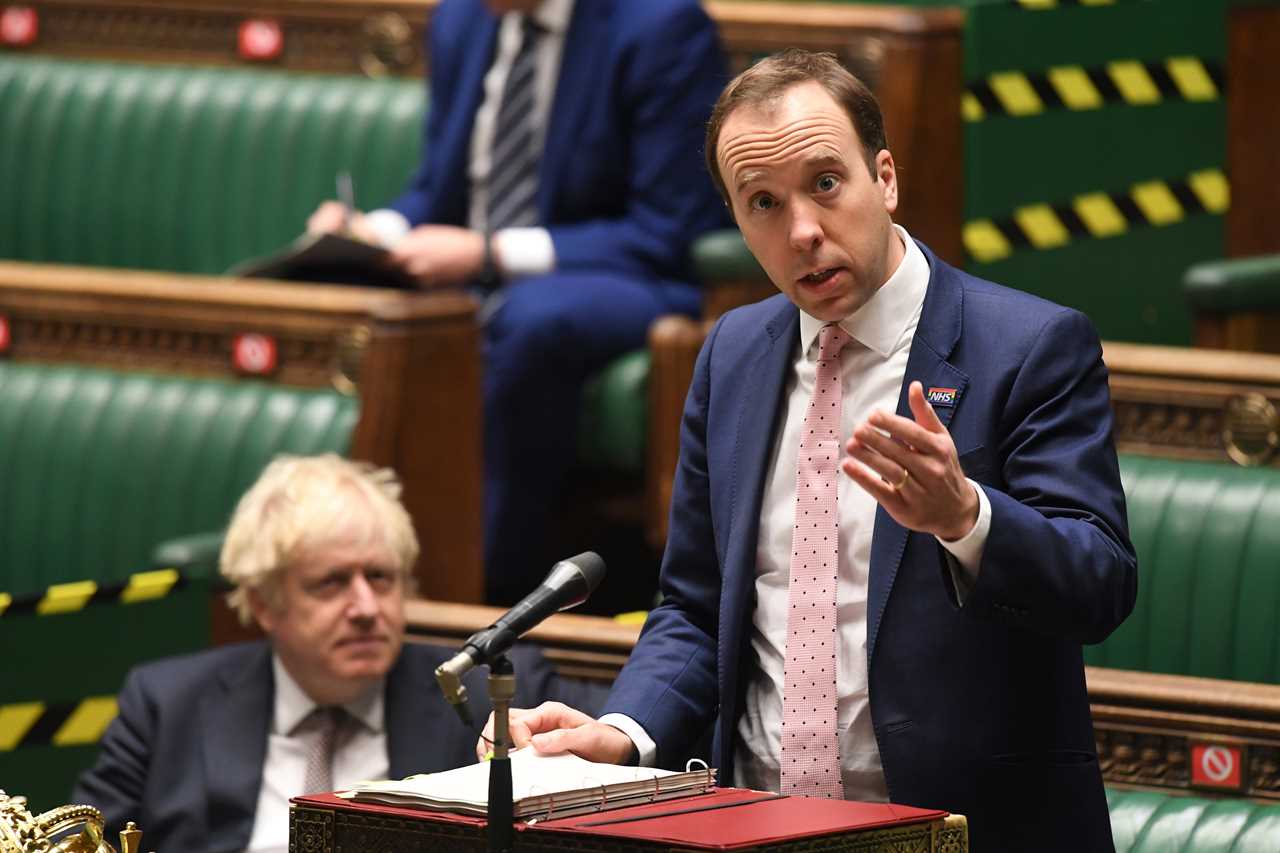
“We’ve all sacrificed so much, everyone has sacrificed enormously in order to get the transmission rate down.
“With only a few months to go until vaccines start to have an effect I think it would just be a terrible mistake.
“I think we must keep this under control and just behave very, very sensibly. It’s extremely difficult to get this right and I don’t envy the politicians.”
